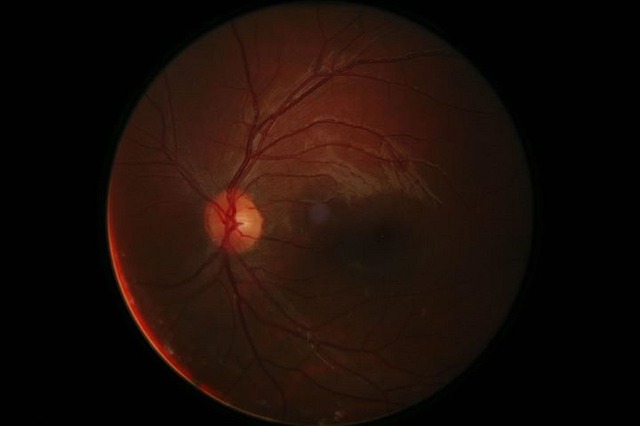Share This Article:

Federal Focus
When an employee detached one retina and tore the other while lifting heavy weights on the job, why couldn't he establish his claim for workers' compensation benefits? It boiled down to what his doctors said -- and didn't. Simply Research subscribers have access to the full text of the decision.
Case
J.M. and Dep't of Justice, U.S. Marshals Svc., No. 25-0291 (ECAB 02/26/25)
What Happened
A criminal investigator for the U.S. Marshals Service filed a traumatic injury claim alleging that he began losing vision in his left eye when he was lifting weights during an assigned fitness hour while in the performance of duty.
He related that he sustained a partial retina tear in his right eye and a detached retina in his left, which required surgical intervention.
The Office of Workers' Compensation Programs informed the investigator of deficiencies in his claim and requested that the agency provide additional information regarding the accuracy of the investigator's statement.
The investigator underwent retinal detachment surgery and was totally disabled for six to eight weeks. He then underwent laser treatment for a retinal hole. After this, the investigator underwent a macula off retinal detachment surgery with pars plan vitrectomy to treat a total retinal detachment.
After the surgeries, OWCP requested additional evidence, and the investigator's doctors continued to provide information.
Nonetheless, OWCP denied the claim, finding that the medical evidence was insufficient to establish a causal relationship between the investigator's diagnosed conditions and the employment incident.
The investigator appealed to the Employees' Compensation Appeals Board.
Rule of Law
Under the Federal Employees' Compensation Act, causal relationship is a medical question that requires rationalized medical opinion evidence to resolve the issue. A physician's opinion on whether there is a causal relationship between the diagnosed condition and the employment incident must be based on a complete factual and medical background. Additionally, the physician's opinion must be expressed in terms of a reasonable degree of medical certainty and must be supported by medical rationale, explaining the nature of the relationship between the diagnosed condition and the accepted employment incident.
What ECAB Said
According to ECAB, OWCP correctly determined that the investigator did not meet his burden of proof to establish a medical condition causally related to the employment incident.
Specifically, ECAB noted:
+ While one of the investigator's doctors indicated that the investigator's medical condition was work-related and happened while the investigator was lifting heavy weights at work, the doctor failed to provide medical rationale explaining the basis of the opinion.
+ Reports from two other doctors did not offer an opinion regarding the cause of the diagnosed conditions.
"An opinion which does not address the cause of an employee's condition is of no probative value on the issue of causal relationship," ECAB wrote.
Thus, ECAB held that the evidence of record was insufficient to establish a causal relationship between the diagnosed eye condition and the employment incident. ECAB allowed the investigator to submit new evidence with a written request for reconsideration to OWCP within one year.
Takeaway
Without explaining, physiologically, how a specific employment incident caused or aggravated a diagnosed condition, a doctor's opinion on causal relationship is of limited probative value and insufficient to establish a claim.
AI california case file caselaw case management case management focus claims compensability compliance compliance corner courts covid do you know the rule employers exclusive remedy florida glossary check Healthcare hr homeroom insurance insurers iowa kentucky leadership NCCI new jersey new york ohio pennsylvania roadmap Safety safety at work state info tech technology violence WDYT west virginia what do you think women's history women's history month workers' comp 101 workers' recovery Workplace Safety Workplace Violence
Read Also
About The Author
About The Author
-
Frank Ferreri
Frank Ferreri, M.A., J.D. covers workers' compensation legal issues. He has published books, articles, and other material on multiple areas of employment, insurance, and disability law. Frank received his master's degree from the University of South Florida and juris doctor from the University of Florida Levin College of Law. Frank encourages everyone to consider helping out the Kind Souls Foundation and Kids' Chance of America.
More by This Author
Read More
- Feb 09, 2026
- WorkersCompensation.com
- Feb 09, 2026
- Chris Parker
- Feb 07, 2026
- Frank Ferreri
- Feb 07, 2026
- Liz Carey
- Feb 06, 2026
- Chriss Swaney




